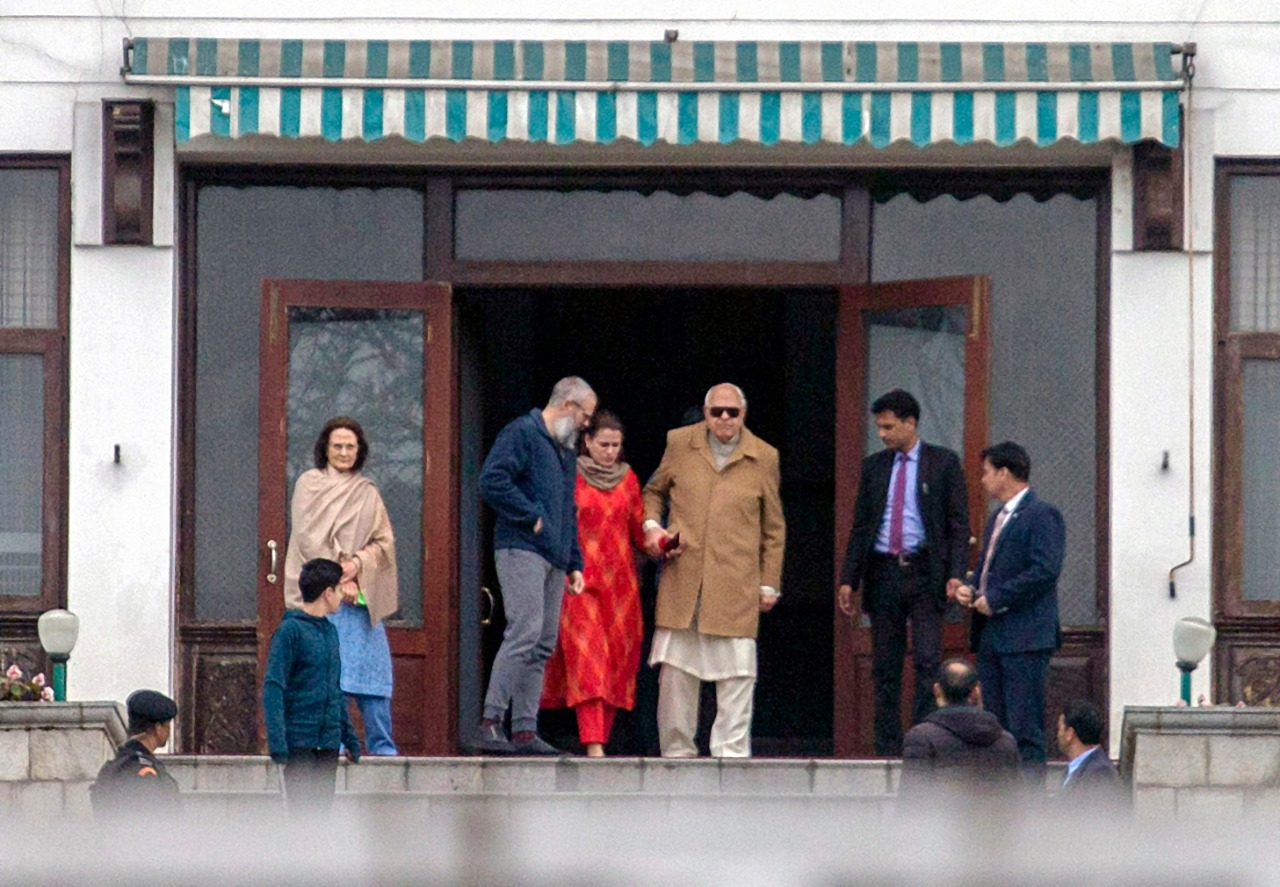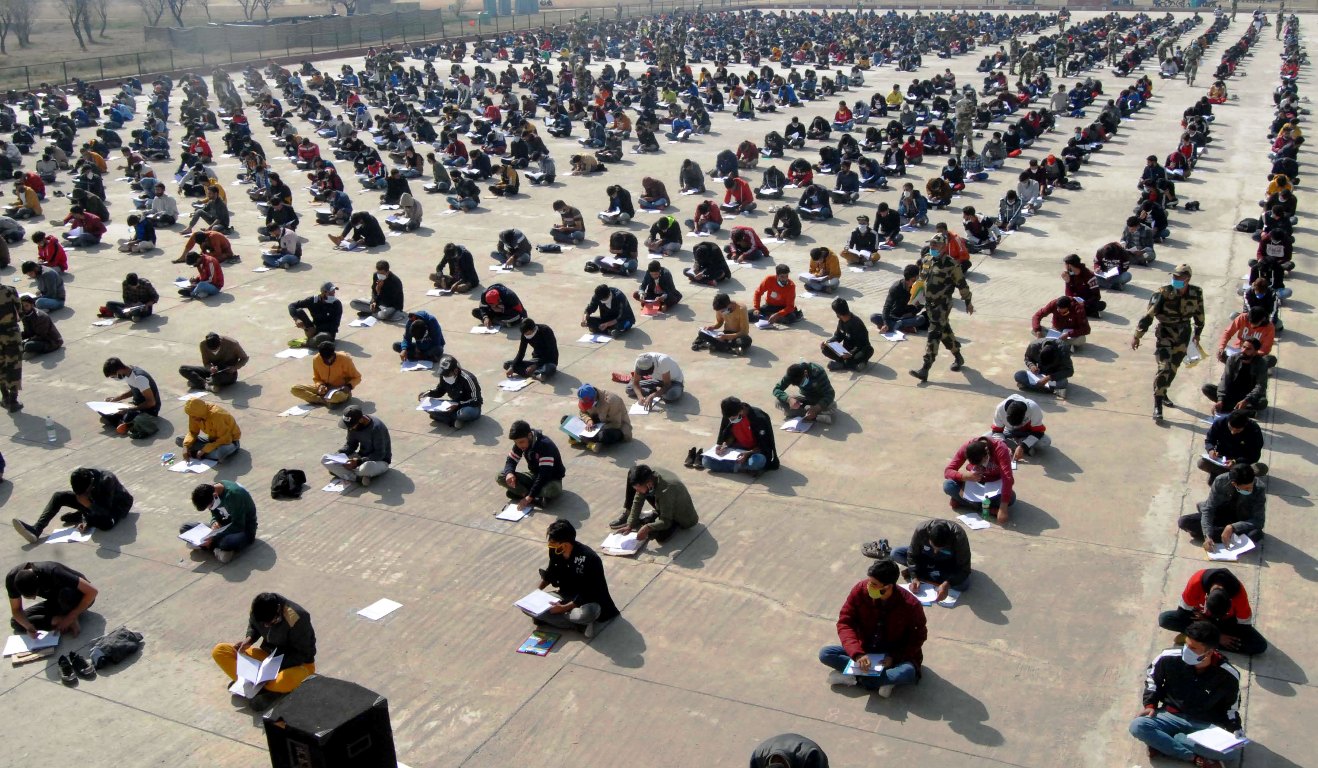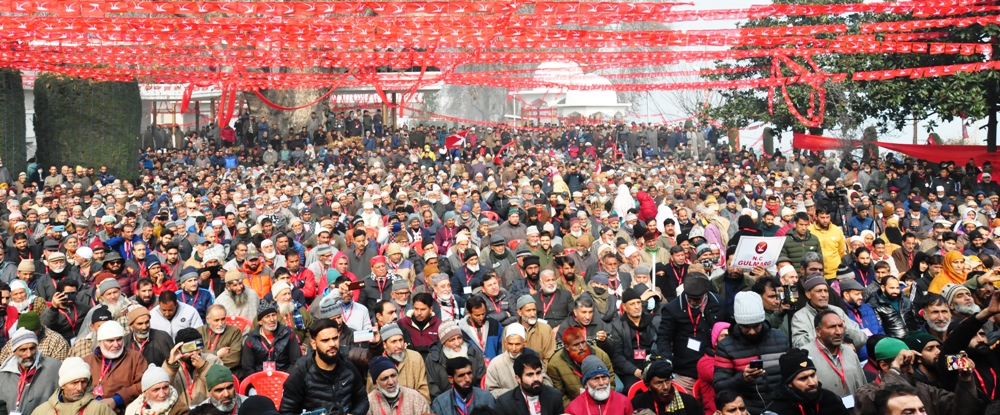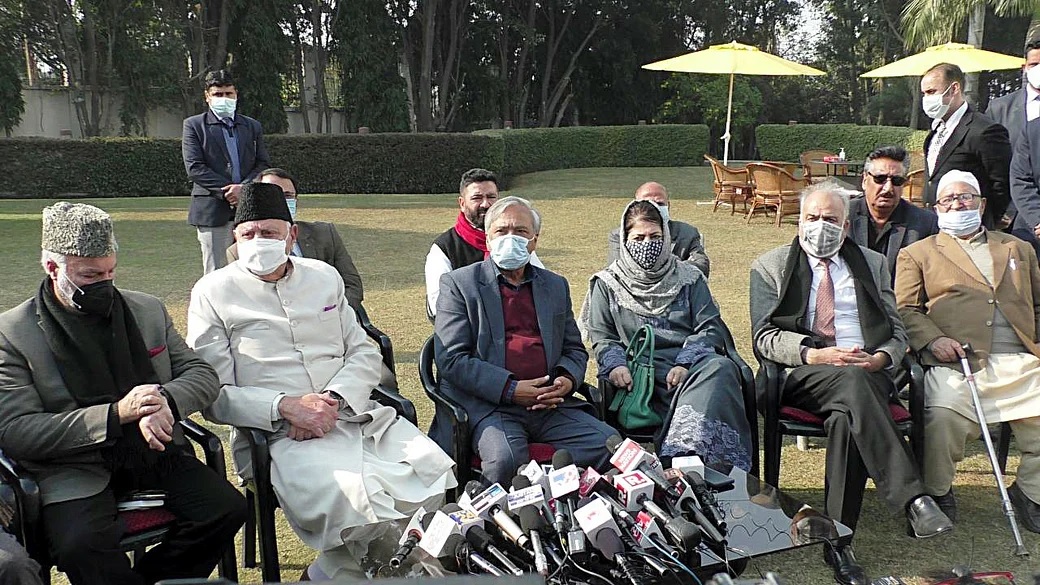As the president of the grand old Jammu and Kashmir National Conference (JKNC), Dr Farooq Abdullah, 85, will encounter the unprecedented challenges of his political career, writes Masood Hussain
Jammu and Kashmir’s five times Chief Minister and incumbent MP from central Kashmir, Dr Farooq Abdullah has retained the leadership of his party. At 85, he is the grand old party’s fourth president. His nomination was approved by voice vote at a huge gathering of delegates invited to the mausoleum of the party founder, Sheikh Mohammad Abdullah, at Naseem Bagh on his 117th birthday. No other politician was nominated to the coveted position so he won unopposed.
Electing the president was the completion of the long process in which the party elected the leaders at the district level and eventually assigned constituencies to some of them.
Observers believe the formal elections were in response to a campaign by the BJP that the Kashmir parties are, like Congress, managed as family possessions in which leadership is inherited from one generation to another. “I wasn’t willing to continue as president,” Dr Abdullah told the audience after taking cover. “However, people in the NC insisted that I cannot leave at this crucial juncture. I agreed, but they should prepare the next generation for leading the party in the future.”
Resolutions
The party used the occasion to seek approval for three resolutions drafted by three committees. These resolutions, party insiders said reflected the thinking at ground zero.

Insisting that Article 370 and Article 35A were “illegally snatched” and “unconstitutionally abrogated” amidst a promise of improved economic development and security scenario, the party’s political resolution said the situation on the twin fronts is worsening. It said the people lack access to the corridors of power as the “basic essence of representation and accountability has long been rescinded”. Drafted by Mohammad Shafi Uri, Choudhary Ramzan, Mian Altaf and Qamar Ali Akhoon, the resolution regretted that even after completing all the formalities, there is no announcement for Assembly elections.
It was in this backdrop that the party is seeking restoration of Articles 370 and 35 A in its “original, undiluted form”, full statehood, public holidays on Martyr’s Day and Sher e Kashmir’s birth anniversary; return of projects from NHPC; and bringing back the prisoners from outside jails to Jammu and Kashmir. It supported the ST status to Paharis.
Unemployment
Expressing dissatisfaction with the overall economic scenario in Jammu and Kashmir, the JKNC’s economic resolution demanded the administration must take urgent measures to improve these conditions, which have left the people gasping for succour and relief. “The flood of unemployment is raging unabated and lakhs of young girls and boys are knocking at the doors of the Government for employment,” the resolution drafted by six-time Finance Minister, Abdul Rahim Rather, Mir Saifullah, Ajay K Sadhotra and Sajad Ahmad Kichloo reads. “It can disturb the balance of our society and create a volatile situation.”

The resolution talked about inflation, imposing GST on food items, and the crisis that the Kashmir fruit industry was subjected to. It has linked economic ill-being with the lack of an elected government. “The Panchayati Raj institutions, which they frequently make mention of, have failed to deliver. The DDC members elected by popular vote have been confined to hired hotel rooms. They are seldom permitted to visit their constituencies due to so-called security reasons,” the resolution added.
Besides, the party also passed a resolution about the state of media in Jammu and Kashmir, which was drafted by Dr Mustafa Kamal, Choudhary M Ramzan, Shameema Firdous, Ratan Lala Gupta and Khalid Najeeb Suharwardi. Seeking credit for encouraging a “free press” in Jammu and Kashmir, the party regretted the deterioration of the media, insisting “the free press has been totally suppressed” as journalists are being targeted from different quarters even as the media is facing “a severe economic crisis”. It demanded the press should operate in “a free environment” without being “subjected to any undue interference in their work from any quarter”.
The Speech
After formally taking over, Dr Abdullah in his speech made certain important observations. He admitted that the party’s decision to boycott the 2018 panchayat polls proved counter-productive. He said they will always participate in all elections. “I, as NC president, am telling you (Omar Abdullah) that you have to contest the election because if we have to fight them (BJP) then we all have to jump into the fray and contest elections,” he told his son who had earlier said he would never contest unless Jammu and Kashmir is not a state again.
At the same time, Dr Abdullah said any intervention by the armed forces or the government in elections will have disastrous consequences. He asked people to support the party the same way Bengalis stood behind Mamata Banerjee.
The resolutions and the statements are for history. In power politics, it is the ‘art of possible’ that eventually takes over real politics. For that, however, it is too early to make a comment. The important question right now is: what are the key challenges that Dr Abdullah will face as the new president of Kashmir’s oldest political party that ruled Jammu and Kashmir for most of the post-1947 era?
Retaining the Party
In the situation after August 2019, some of the parties were decimated. Mehbooba Mufti-led PDP was the first casualty of the situation and most of its top leaders left her. Of its 28 lawmakers, so far, 19 have deserted the party. Most of them joined the Jammu and Kashmir Apni Party that BJPDP’s last finance minister and business tycoon, Syed Altaf Bukhari floated. Those who had some discomfort with Bukhari joined Sajad Lone-led Peoples Conference.
The second major crisis was faced by the Congress in Jammu and Kashmir. After Ghulam Nabi Azad left the party and decided to form his own regional party, most of the Congressmen joined him. These included almost all the lawmakers and former ministers. Even though Azad is yet to make his party to the level he might have thought, the fact is that Congress is struggling to fill the void.

Though the JKNC did not remain unscathed in, what is now being called, the “redeployment” of “political forces”, it was by and large on a much safer side. Junaid Azim Mattu and Devinder Singh Rana were the key exits from the Omar Abdullah flock. So was Ghulam Nabi Ratanpuri. Syed Basharat Bukhari, who had migrated to the party after his exit from PDP, remained parked in the party for some time and finally took the vows with Sajjad Lone. Rana’s switch over to BJP did impact the party in Jammu plains as it lost a number of leaders including Surjit Singh Slathia.
Though some off-springs of the party leaders moved here and there, this by and large did not impact the old guard of the party. Party insiders said Dr Abdullah’s leadership will cement the party further and minimise the chances of a situation that the PDP and Congress witnessed.
The PAGD
The major challenge that Dr Abdullah will have to negotiate is how to secure the interests of the PAGD, a loose alliance with many other parties but primarily the PDP and CPI(M). Unlike party politics, the PAGD is for the undoing of August 5, 2019.

Even though the JKNC political resolution has reiterated what PAGD stands for, how will Dr Abdullah manage all this when his party interests could be outside PAGD? Can they contest polls together? If they do it, will it eventually mend the fences between the two parties? That remains to be seen.
Elections
Delimitation is over, and so is the mass revision of electoral rolls. Nobody knows when the elections for the assembly of Jammu and Kashmir will be announced. Regardless of the fact whether the polls will be held in 2023 – most of the year will be busy with G20 meetings, including one in Srinagar – or 2024, the next election will be completely different.
Congress is unlikely to matter in this election in Jammu and Kashmir. For regional parties like JKNC and PDP, it will not be a development that will make a poll plank. They will have no other option but to talk in terms of the past. If the two parties will have the same issues, will it mean a coalition? Though PDP will not be unwilling – given the dent it is surviving with, will the JKNC be supportive of the idea? The party has already assigned constituencies to its leaders and it is being seen as a nomination in anticipation.
The last experience has not been better. The DDC polls, which they contested together, created more problems for both of them. Will they repeat the same mistake?
If they decided to go separately, will they eventually trigger a vote division of the mandate, which could help BJP and its informal allies?
It is highly unlikely that either PDP or JKNC can have any stake in the plains of Jammu. How will the parties negotiate the divide that is visible on roads in Pir Panchal valley? Unlike PDP, NC has huge stakes in Chenab Valley and this time the party has erstwhile friend Ghulam Nabi Azad to fight for his home turf.
These are the challenges that Dr Abdullah will have to encounter in the next two years, if not more. This will make his term exceptionally different.















